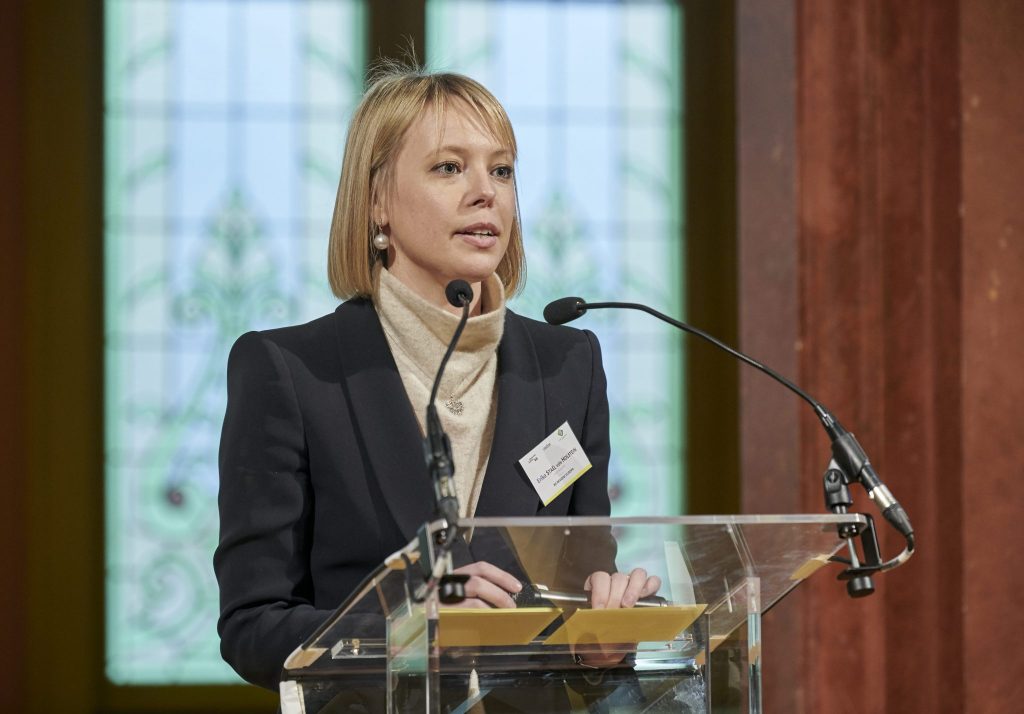Stop Tilting at Windmills to ReImagine Our Future and Our World Together
Erika Staël von Holstein is Chief Executive of Re-Imagine Europa (RIE). She has been working in the field of connecting science, society and policy for over a decade. She is fellow at PlusValue, a UK-based European company focusing on social innovation. Until September 2016, she was Chairman of the Advisory Board of REIsearch, an innovative non-profit European platform co-funded by the European Commission. From 2010 to 2015 she was the Executive Director of Atomium – European Institute for Science, Media and Democracy working on issues like Science in Society, Responsible Research and Innovation, Digital Science, Evidence-based Policy Making and Citizen Engagement.

Do you ever feel like Don Quixote, constantly fighting imaginary enemies? Do not get me wrong, the problems we see are real. Increased inequality and negative emotions are leading us to a crisis of trust. The past crises have underlined the vulnerabilities of our model and considerably damaged the outlook of the European dream. Civic unrest is a growing global issue, fostering protest movements. In addition, social media tend to favor extreme and negative emotions, exacerbating a growing polarisation in the public sphere. All of these contribute to societal fragmentation: due to the lack of social cohesion, policymakers are not able to offer long-term visions and advance resolutive policies that address the real problems of our times, locking us in this cycle of distrust.
Our world is changing so much and so fast, that our institutions and systems cannot keep up. It is not that our systems were designed to fault us. They just do not provide real answers to the challenges of the 21st century, they were designed for another world. A world that does not exist anymore. To be able to reimagine a shared vision for the future we need to stop tilting at windmills. As Professor Damasio says, “we need a vaccine against anger” and revert the cycle of distrust that dominates the social and political spheres.
It is necessary to overcome the polarisation and social fragmentation that divides and paralyses us. If we look around, most governments in Europe are today complex coalitions of governments supported by small parties, lacking the institutional and societal support to undertake the much-needed structural changes and reforms. Citizens urge for a better society in which voices are heard and problems are answered with concrete actions, moving away from binary “yes/no” debates that divide us.
But how can we do it? Re-Imagine Europa, together with the European League of Economic Cooperation and Fundación La Caixa, has designed and launched Future4Citizens Dialogues, an innovative citizens’ engagement initiative that will gather around 50 participants from different backgrounds and experiences to move beyond polarising narratives and reimagine together a better future for all of us. The event, that will be held at CaixaForum Macaya on October 19th, is part of the Barcelona European Capital of Democracy Program and Horizon Europe project ‘Augmenting participation, co-creation, trust, and transparency in Deliberative Democracy at all scales (ORBIS)’, led by the Politecnico di Milano. Among the institutions supporting the initiative, we also have the European Parliament Former Members Association, and the Barcelona City Hall, among others.
Using Re-Imagine Europa’s innovative narrative methodology, the Future4Citizens Dialogues will encourage the participants to identify shared values and objectives, to go beyond their own windmills and to reach out-of-the-box ideas. Narratives are structures that our minds and cultures use as a shared means to understand and organise reality. We all live in different realities that are dictated and influenced by our personal experiences and situations. We might use the same words but often we mean different things. Even so, what our narrative analysis shows is that, beyond all these superficial differences, our basic objectives and challenges are very similar.
Through the engagement of local communities and listening to their concerns and hopes, this project will respond to the lack of dialogue between citizenship and policymaking institutions by building bridges in the public debate to enable the transition to a more inclusive, transparent, and trustful Deliberative Democracy in Europe, ahead of the European Elections in June 2024.
If we focus on solutions for the real big issues, we can benefit from all the diversity of experiences that so well represent the European project and really start building new ideas. Together.